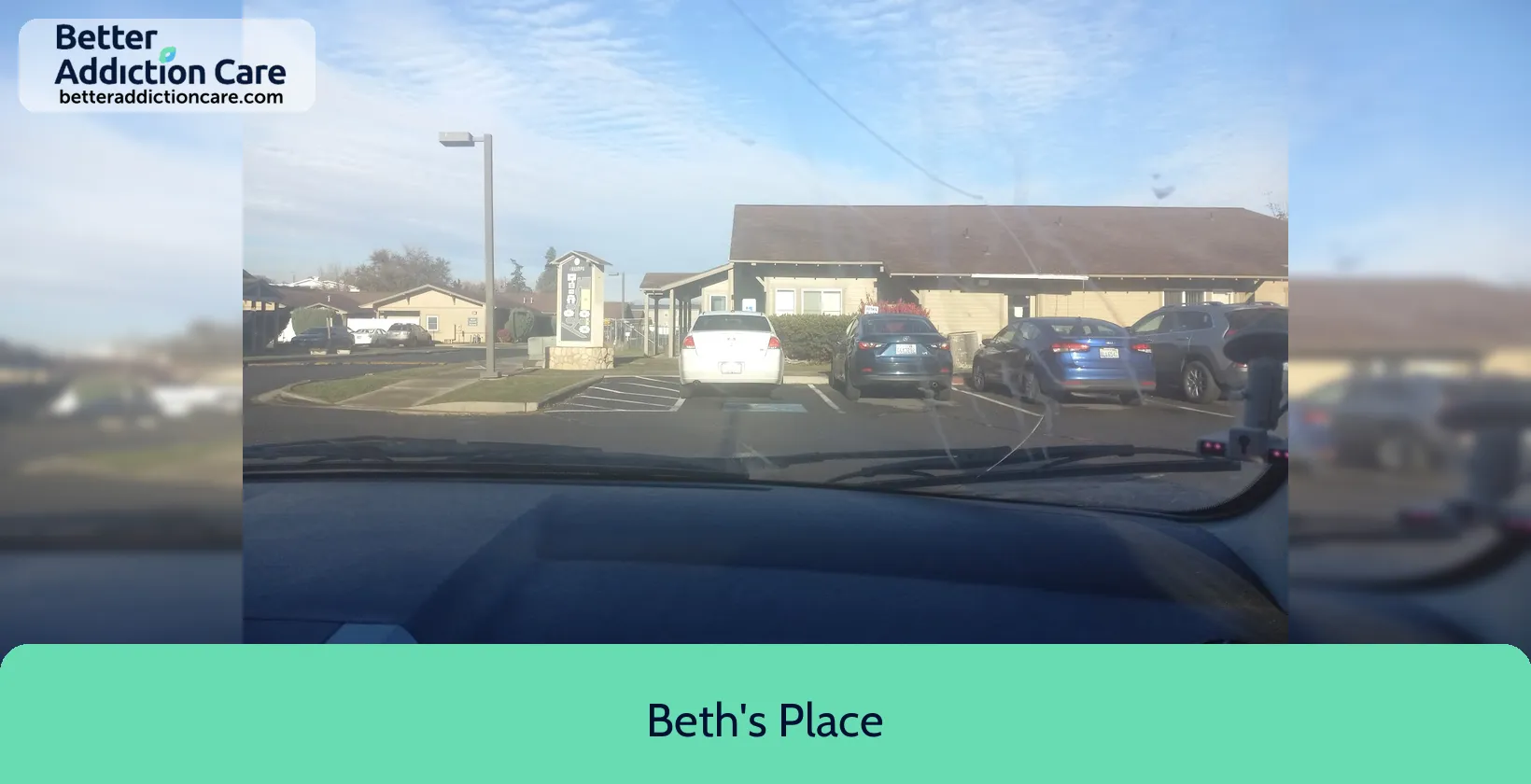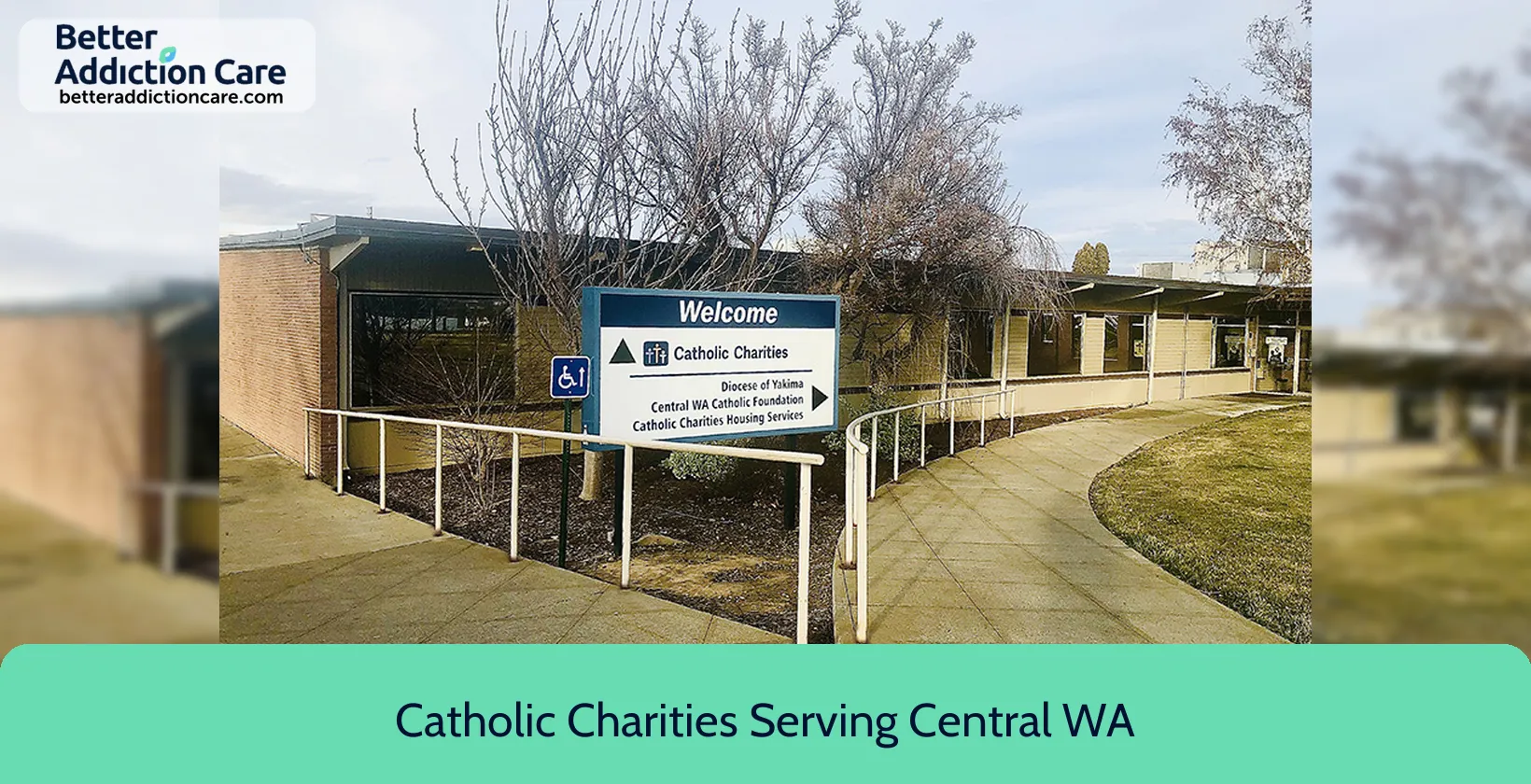Catholic Charities Diocese of Yamika - Yakima D Street

Overview
Catholic Charities Diocese of Yamika - Yakima D Street is a mental health treatment center for people seeking treatment near Yakima County. As part of their treatment modalities for recovery, Catholic Charities Diocese of Yamika - Yakima D Street provides couples/family therapy, group counseling, and cognitive behavioral therapy during treatment. Catholic Charities Diocese of Yamika - Yakima D Street is located in Yakima, Washington, accepting cash or self-payment for treatment.
Catholic Charities Diocese of Yamika - Yakima D Street at a Glance
Payment Options
- Cash or self-payment
- Medicaid
- Medicare
- State-financed health insurance plan other than Medicaid
- Private health insurance
Assessments
- Screening for tobacco use
- Comprehensive mental health assessment
- Comprehensive substance use assessment
Age Groups
- Children/adolescents
- Young adults
- Adults
- Seniors
Ancillary Services
- Case management service
- Court-ordered outpatient treatment
- Illness management and recovery
- Suicide prevention services
Highlights About Catholic Charities Diocese of Yamika - Yakima D Street
6.59/10
With an overall rating of 6.59/10, this facility has following balanced range of services. Alcohol Rehabilitation: 8.00/10, Drug Rehab and Detox: 6.00/10, Insurance and Payments: 6.00/10, Treatment Options: 6.36/10.-
Alcohol Rehabilitation 8.00
-
Treatment Options 6.36
-
Drug Rehab and Detox 6.00
-
Insurance and Payments 6.00
Treatment At Catholic Charities Diocese of Yamika - Yakima D Street
Treatment Conditions
- Mental health treatment
- Substance use treatment
- Co-occurring Disorders
Care Levels
- Outpatient
Treatment Modalities
- Couples/family therapy
- Group counseling
- Cognitive behavioral therapy
- Telemedicine/telehealth therapy
Ancillary Services
Languages
- Sign language services for the deaf and hard of hearing
- Spanish
Special Programs
- Clients who have experienced trauma
- Persons with post-traumatic stress disorder (PTSD)
Get Help Now
Common Questions About Catholic Charities Diocese of Yamika - Yakima D Street
Contact Information
Other Facilities in Yakima

7.23

6.68

6.99

6.96

7.35

7.35

7.28

6.59
DISCLAIMER: The facility name, logo and brand are the property and registered trademarks of Catholic Charities Serving Central WA - Yakima Main, and are being used for identification and informational purposes only. Use of these names, logos and brands shall not imply endorsement. BetterAddictionCare.com is not affiliated with or sponsored by Catholic Charities Serving Central WA - Yakima Main.
